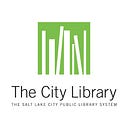How The City Library Stands Up to Book Bans
Through October, The Salt Lake City Public Library is drawing attention to banned books. This is an extension of the American Library Association’s Banned Books Week, which runs from Sep 22–28. During this week, libraries across the country highlight some of the important books that have faced bans/challenges and take a stand for Intellectual Freedom.
In 2023, U.S. public libraries faced the highest number of book bans/challenges ever, with 4,240 challenges to unique titles, an increase of 92% from the previous year. This summer, Utah public schools banned 13 titles in accordance with Utah law, HB29. This ban was covered heavily by many national news outlets.
One of the founding principles of Libraries is upholding your right to Intellectual Freedom. In its simplest form, Intellectual Freedom is the right to information, the right to choose what you want to read — and not have others make that choice for you. Book challenges and bans take away that right, allowing others to make decisions for what is available for you and your family to read. They create extra barriers to access books (for many, buying books can be cost-prohibitive), silence marginalized voices, and limit available perspectives.
Utah is a state that values independence and trusts individuals and families to make the best decisions for themselves and their households. This ideal is in contrast to the fact that Utah had the 7th most cumulative book bans among the states recorded between July 2021 to December 2023. At The City Library, however, it is our policy that only a child’s parent or guardian may restrict their Library access, and that they are responsible for their child’s reading choices.
According to the data the American Library Association has collected, “Titles representing the voices and lived experiences of LGBTQIA+ and BIPOC individuals made up 47% of those targeted in censorship attempts [in 2023].” Data supports the finding that reading fiction improves empathy, helping children understand and empathize with people different from themselves, or see themselves reflected in characters and stories. In the words of poet Natalie Diaz, “Reading is a way of practicing the imagination necessary to broaden our capacities to understand ourselves and others.”
Items in The City Library’s collection — books, graphic novels, music, and movies — are chosen by Selectors. These are trained and experienced librarians who evaluate if items meet the library’s criteria for inclusion, with the understanding that not all items in our library will be of interest to all people. If any library patron feels an item does not belong in the collection, they may submit a challenge. The City Library takes challenges seriously and has a step-by-step process for reassessing materials within the collection. More information about this process is available upon request.
“Intellectual freedom is the right of every individual to both seek and receive information from multiple points of view without restriction. It provides for free access to expression of ideas through which any and all sides of a question, cause, or movement may be explored.” — The City Library’s policy manual.
